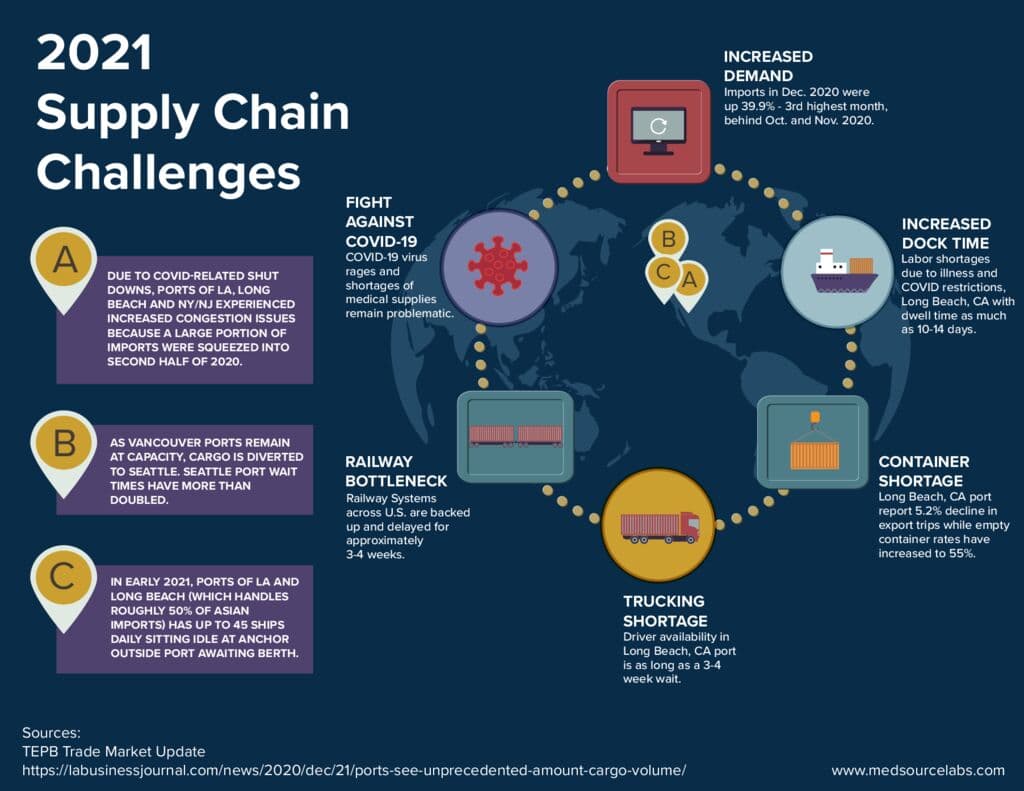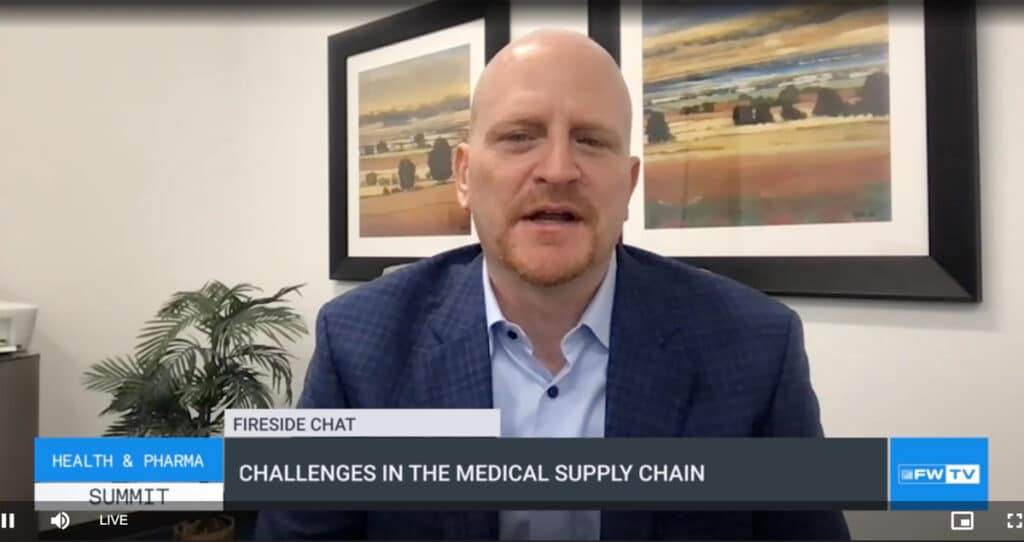February 17, 2021
President Joe Biden’s ‘National Strategy’ to expand the stock of essential medical supplies, and fund an accelerated national coronavirus vaccination program is a welcome announcement – but policymakers must act to address serious logistical issues to improve distribution of the vaccine to health care workers, first responders, and the elderly, and prevent further loss of life.
Announcing more fiscal stimulus and faster vaccination should not cloud the fact that risks remain to the COVID-19 response effort, problems which – if ignored – will impede the country’s ability to recover from this pandemic.
A real concern is the continued need of essential medical supplies and medications, an issue tied to the severe logjam in the global supply chain. According to OEC Group, a freight forwarding company, the most vexing problem is the lack of equipment — particularly a massive shortage of containers, truckers, and warehouse storage space.
Top priority for our leaders in both the public and private sectors should be given to fixing this holdup, and reversing the resulting surge in costs, or risk blunting our nation’s pandemic response.
The bottleneck in the ports is a multi-faceted problem and is having a ripple effect across manufacturing hubs around the world all the way back to the United States. The surge in medications and product demand and significant increase in vessel arriving is straining capacity, both in terms of how many containers can be handled within the port, as well as how many ships can be berthed and serviced.
While the number of COVID cases in the U.S. hospital systems has temporarily slowed, ICUs are still being inundated with COVID patients. The latest data compiled by Johns Hopkins University shows the U.S. has exceeded 485,000 deaths, and more than 2.4 million fatalities globally, underscoring how the public health crisis continues to move in the wrong direction. Epidemiologists also warn of further spikes in COVID-19 cases because of the new strains of the virus.
Our hospital workers have been overworked and understaffed for several months, and the last thing they need is critical medical supply shortages that only worsen the situation.
Essential medical supplies such as breathing tubes, oxygen cylinders, and other apparatus needed for the intensive care treatment of COVID-19 patients are lacking. Moreover, getting these supplies to our partners in the healthcare community continues to be a great challenge because of the aforementioned strains in the global supply chain.
There is an acute shortage of containers, with very few available to companies shipping products from China and other Asian countries, while there is an overabundance of empty containers stateside. So ports on the West Coast are overwhelmed by the arrival of shipping containers from China, with many ships idling on the water waiting to dock in Los Angeles, Long Beach, Oakland, Tacoma and British Columbia. Meanwhile, ship operators are unwilling to make the return journey unless they have enough cargo intended for Asian markets to cover their costs.
Cycle times are running around three times longer than usual. These delays are also causing a spike in the prices of goods, particularly for companies seeking to prioritize shipping or lease cargo planes to deliver key products. Many reports show that the average container turnaround time has grown from 60 days to 100 days because of reduced handling capacity from lockdowns across the globe with container rates to the U.S. East Coast jumping up 85% since June 2020. These issues are problematic for virtually every type of industry, but particularly the health care sector.
FreightWavesTV: Health & Pharma Summit, Feb. 2021
All this means is that essential medical products vital to U.S. hospitals and their staff remain stranded halfway across the world.
The unloading of critical medical products at ports should be prioritized, as well as their subsequent transportation. Spiraling costs, which will eventually be passed on to hospitals, need to be brought under control. Incentives can be offered to shipping, storage and trucking companies to transport these goods without charging an excessive premium – for example through tax credits or financial reimbursements.
The public health crisis is nowhere close to be being over, and the U.S. government – working in close partnership with the private sector – must explore all options to ensure the timely and cost-effective delivery of medical supplies and medications. There are many efforts underway but as the bottlenecks in our supply chain worsen, we all need to work in unision in our fight against the global pandemic.
Todd Fagley is founder and CEO of MedSource Labs, a medical manufacturing firm based in Minnesota.
Related News
WSJ: Shipping Container Shortage Gives Commodity Prices Extra Boost


